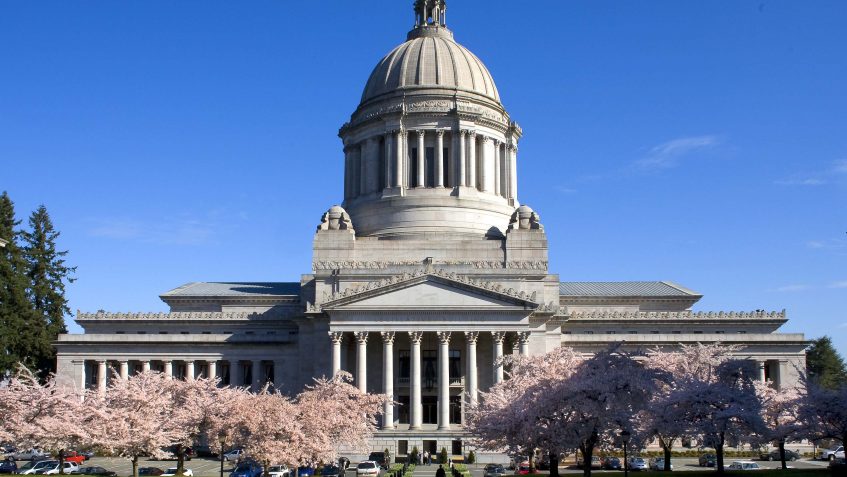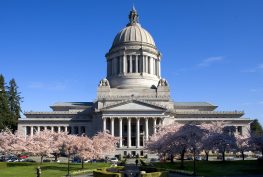OLYMPIA—Leaders in the House and Senate today announced their final agreement on the state’s capital budget. The $8.9 billion budget funds construction projects and infrastructure across Washington and will set records for the largest ever investment in affordable housing in state history, along with major investments in behavioral health, school construction, and more.
“This budget makes historic and record-setting progress on so many of the big issues facing our state—housing affordability, educating our future workforce, addressing our climate crisis, and so much more,” said Sen. Mark Mullet (D-Issaquah), vice chair of the Senate Ways & Means Committee. “Legislators from both parties and both chambers came together to find the best ideas to meet the needs of Washingtonians, now and in years to come, and this is a fiscally responsible budget that will do a ton of good.”
Details on the budget are available at fiscal.wa.gov.
“This budget will create jobs in every corner of our state,” said Rep. Steve Tharinger (D-Port Townsend), Chair of the House Capital Budget Committee. ““This biennial budget addresses some of the more challenging needs in our communities around affordable housing, behavioral health and health care facilities. Funds are provided for construction in both K-12 and Higher Education. It also makes investments in ecosystem resiliency and restoration while working on carbon reduction, focusing on overburdened communities. I’m proud that we listened to each other with respect and worked with lawmakers from both parties to craft a budget that will build a brighter future for all of our families and communities, that will serve the people of Washington for generations.”
Using money from the Climate Commitment Act, the budget also takes major steps to combat climate change, create good jobs in the clean energy sector, and support those most affected by pollution. The proposal also stays within the state’s constitutional debt limit to protect the state’s historically high credit rating.
Affordable housing
The budget has a total of $693.7 million in housing investments, including $570 million for affordable housing and a record-setting $400 million for the Housing Trust Fund. This is a significant increase over the affordable housing investments made in the 2021 capital budget, more than doubling support for the Housing Trust Fund.
Additional funding will support land acquisition for the Housing Finance Commission, transit-oriented development, and grants for the Connecting Housing to Infrastructure Program. Specific housing projects funded include the Mary’s Place shelter in Burien, Tacoma/Pierce County Habitat for Humanity, St. Agnes Haven in Spokane, the African Diaspora Cultural Anchor Village in SeaTac, and many more.
Behavioral health
The budget funds $613 million for a new forensic hospital at Western State Hospital, which will help efforts to get the state’s largest psychiatric hospital recertified by the federal government. It makes major investments in substance abuse treatment facilities, to help Washingtonians suffering from drug addiction.
The proposal also includes $211 million to increase the capacity for behavioral health care in the community, funding projects like Compass Health in Everett, the Center for Alcohol & Drug Treatment in Wenatchee, the Jamestown S’Klallam Behavioral Health Center in Sequim, the Nisqually Tribe Healing Village in Olympia, and more.
Environmental protection
The proposal will set a record for the largest ever investment in the Washington Wildlife & Recreation Program, with $120 million proposed for conservation and outdoor recreation projects across Washington.
The budget also uses $717 million raised by the auction of Climate Commitment Act permits to make major investments to improve floodplain resilience, acquire and restore natural areas along Puget Sound, remove barriers to fish passage, and undertake other major projects in the purview of the state Department of Ecology. The budget also provides significant funding to water supply projects in the Columbia, Yakima, and Chehalis river basins.
Higher education and school construction
The budget makes crucial investments in education, from early learning, K-12, and skills centers, all through higher education.
It includes $70 million in grants for the construction of early learning facilities, $588 million for the School Construction Assistance Program for K-12 schools, and an additional $100 million for modernization and improvements at small district and tribal compact schools – triple the funding level provided for those schools in the 2021-23 capital budget.
For higher education, the budget makes significant investments across the state, totaling more than $1.4 billion. Funding will help build Washington State University’s new Engineering Student Success Building and its Knott Dairy Farm, which is the source of milk for the famous Cougar Gold cheese, among other projects.
At the University of Washington, funding includes state support for the Magnuson Health Sciences building, Anderson Hall, and wǝɫǝbʔaltxʷ Intellectual House.
Western Washington University will receive funding to help upgrade its heating system to cleaner energy and more. Many other investments will go to other universities and state community and technical colleges.
Public safety
The budget provides funding for two State Patrol crime labs, to ensure that evidence can be forensically analyzed within the state’s 45-day goal.
It also supports the establishment of new criminal justice regional training centers in Bellingham, Spokane, and Clark County, so that law enforcement officers statewide can stay closer to home to get the training they need to do their jobs and protect the public. Another $40 million will go to school seismic safety grants, to help protect students and teachers from earthquakes, alongside additional funding for many other local and community projects.
Jobs and the economy
The budget makes important investments in economic infrastructure, including $200 million in broadband internet infrastructure and $400 million for the Public Works Assistance Account. Construction on projects funded by the capital budget is expected to directly create tens of thousands of family-wage jobs.
The final budget agreement is expected to be passed by both chambers before the end of the 2023 session on Sunday, April 23.


